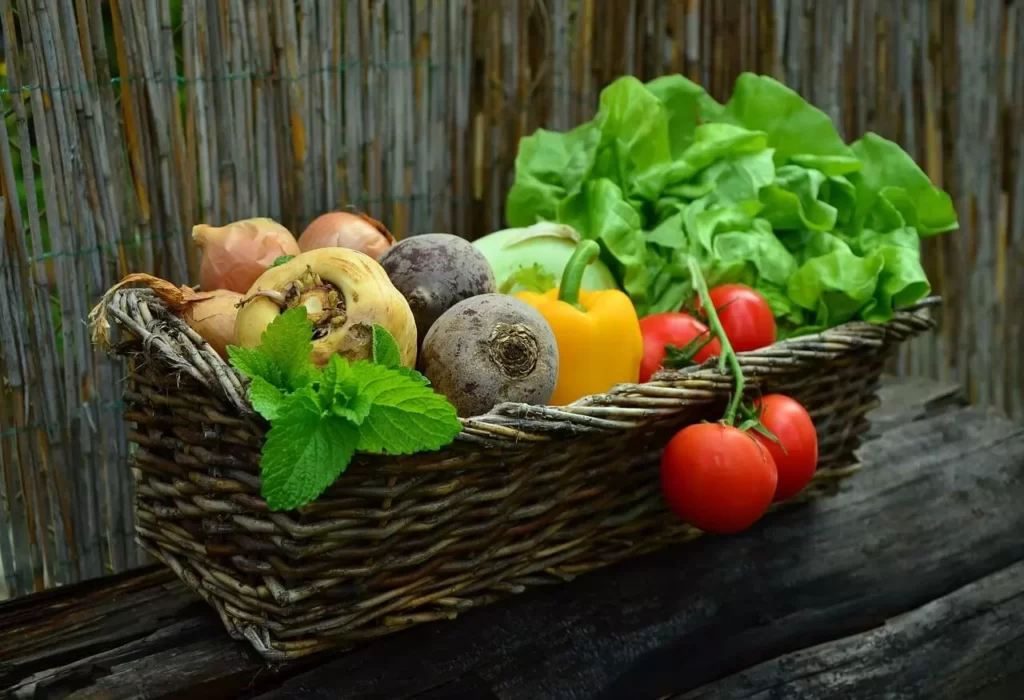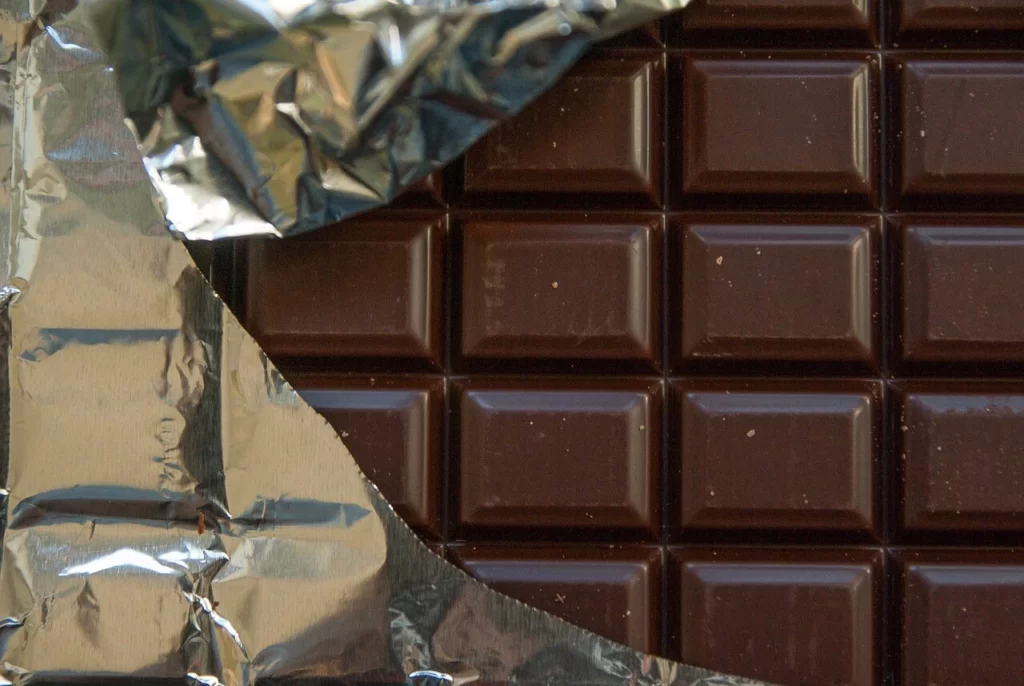Foods to eat during periods: During your monthly cycle, do you find yourself exhausted, weary, and experiencing period cramps? You’re not alone; according to Women’s Health Concern, 80 percent of women will experience period problems at some point in their lives. While painkillers are usually effective, there are other, more natural steps you may take to help your body through the process, with diet being a key component to consider.
Foods to eat during periods
1. Leafy green vegetables

It’s normal to experience decreases in the iron levels of your menstrual cycle, especially when your menstrual cycle is heavy. This can cause discomfort in the body, fatigue and dizziness.
Green leafy vegetables like spinach and kale can increase the levels of iron in your body. The spinach is also a good source of magnesium.
2. Water
A good intake of water is essential and is particularly important during your period. Being hydrated will reduce the chance of developing headaches due to dehydration that are a common sign of menstrual cramps.
A healthy intake of water can help prevent you from losing water and bloating.
3. Fruit to eat during periods

The water-rich fruits, such as cucumber and watermelon, can be great for staying well-hydrated.
Fruits that are sweet can help reduce your cravings for sugar without having to consume a lot of refined sugars. This could cause your blood sugar levels to increase and later drop.
4. Ginger (foods that help with cramps)
Warm mugs or two of Ginger tea will help ease the discomfort of menstrual flow. Ginger is anti-inflammatory and can help soothe sore muscles.
Ginger can also help reduce nausea. A few studies support this, however, an study conducted in 2018 discovered that ginger successfully helped reduce nausea and vomiting during the very first three months of gestation. Because it’s safe and affordable, it’s definitely worth a shot.
Be careful not to drink too much ginger, however: Consuming over 4 grams of ginger in one day can cause stomachaches and heartburn.
5. Chicken (Foods to eat during periods)

Chicken is another protein- and iron-rich food item you can include in your daily diet. Protein intake is vital to overall health and can aid in keeping you satisfied and full during your period, reducing cravings.
6. Fish is best foods to eat during periods
High in iron, protein as well as omega-3 fats Fish is an excellent food item to add to your daily diet. Consuming iron counterbalances the decrease in iron levels women may experience during menstrual cycles.
Omega-3s may reduce the severity of menstrual pain according to the results of a study from 2012. Participants who took omega-3 supplements reported that their menstrual discomfort decreased enough to cut down on the amount of ibuprofen they consumed.
A study in 2014 found that omega-3s could also help to reduce depression. If you suffer from mood swings or depression during menstrual cycles, omega-3s could help.
7. Turmeric (what to eat on your period)
Turmeric is widely regarded as anti-inflammatory food and curcumin is the primary active ingredient.
A study in 2015 focused on curcumin’s effects in relation to PMS symptoms and found that women who took curcumin experienced less severe symptoms.
8. Dark chocolate (snacks to eat on your period)

A nutritious and tasty snacks, dark chocolate is rich in iron as well as magnesium. A 100 grams of 70-85 percent dark chocolate is the recommended 67 percent daily allowance (RDI) in iron, and 58 % of RDI in magnesium.
A 2010 study by the Trusted Source discovered that magnesium decreased the degree associated with PMS symptoms. According to the findings of a 2015 study conducted by Trusted Source the magnesium deficient deficits were more likely suffer from severe PMS symptoms.
9. Nuts (Foods to eat during periods)
A majority of nuts are rich in Omega-3-fatty acids and they’re an excellent sources of protein. They also have magnesium and different vitamins.
If you’re not able to consume nuts by themselves make nut butters, or milks made from nuts or these ingredients into smoothies.
10. Flaxseed oil
15 milliliters of flaxseed oil has 7,195 milligramsthemega-3 fat acids. For a comparison this, according to the Office of Dietary Supplements says that you only require 1,100-1600 milligrams sources of omega-3s a day.
An smaller study has shown that flaxseed oil helped ease constipation, which is a common symptom associated with menstrual cycle. But, more research is required to determine the benefits of flaxseed oil to digestion health.
11. Quinoa is period food to eat
Quinoa can be high in minerals like iron protein, magnesium, and iron. It’s also gluten-free, which means it’s a fantastic food for people suffering from celiac disease.
Additionally, it has an extremely lower Glycemic Index that means you’ll likely feel full and energetic for an extended period after having it.
12. Beans and lentils (Foods that help with menstrual cramps)
Lentils and beans are both high in protein, making them great meat alternatives for vegetarians and vegans.
They’re also a good source of iron, making them excellent food choices in the event that you have low iron levels.
13. Yogurt (what to eat during periods to reduce stomach pain)
Many women experience yeast infections either during or following their menstrual cycle. If you’re prone to yeast-related infections high in probiotics such as yogurt can help nourish your “good” bacteria in your vagina, and can help you fight off the yeast infections.
Yogurt is also a good source of magnesium, as well as other important minerals, including calcium.
14. Tofu
A favorite source of protein for vegetarians as well as vegans, tofu comes by soaking soybeans. It is rich in magnesium, iron, and calcium.
15. Peppermint tea
A study from 2016 indicates that the tea peppermint can ease the effects of PMS. In particular, it is said to ease menstrual cramps, nausea and diarrhea.
16. Kombucha
Yogurt isn’t just the one probiotic-rich food item that can provide benefits to fight yeast.
If you’re not a dairy-free person, kombucha tea is an excellent fermented food that’s becoming more widely accessible than ever. Beware of kombucha drinks which contain sugar in excess.
Foods to avoid during period
Although all foods are safe when eaten in moderation, you may prefer to avoid certain foods that may cause symptoms of your period.
1. Salt (What not to eat during periods)
A diet high in salt can lead to water retention that could cause the appearance of bloating. To prevent bloating, do not sprinkle salt on your meals and stay clear of processed foods with a high amount of sodium.
2. Sugar
It’s okay to indulge in sugar in moderation, however taking too much could cause a surge in energy that is followed by an energy crash. This can make you feel more depressed.
If you feel anxious, depressed or stressed when you are having your period, limiting the amount of sugar you consume can aid in regulating your mood.
3. Coffee
Caffeine may cause constipation and water retention. It also can cause headaches to worsen. However, caffeine withdrawal can trigger headaches as well and it’s a good idea to not cut out the coffee altogether if you’re accustomed to drinking a couple of cups each day.
Coffee may also trigger digestive problems. If you are prone to experiencing vomiting during menstrual cycles, cutting down the amount of coffee you drink could prevent the issue from occurring.
4. Alcohol
Alcohol could have numerous negative consequences on your body, that can cause the symptoms of your menstrual cycle.
Alcohol for example can make you dehydrated and cause headaches to worsen and lead to swelling. This can lead to digestive issueslike nausea and diarrhea.
Additionally, a hangover could cause many of the same symptoms you experience during your period, such as:
- headaches
- nausea
- vomiting
- diarrhea
- fatigue
5. Hot and spicy foods
Many people discover that spicy foods can cause upset to their stomachs and cause diarrhea, stomach pain and sometimes nausea.
If your stomach is struggling to eat spicy foods, or If you’re new in eating these foods regularly, it may be better to stay clear of these foods in the course of your periods.
6. Red meat
When you are having your period the body produces prostaglandins. These chemicals help your Uterus contract and rid of the lining of your uterus leading to menstrual cycle. However, excessive levels of prostaglandins trigger cramps.
Red meat can be rich in iron, however it also has high levels of prostaglandins, and is best avoided during menstrual cycle.
7. Foods you aren’t able to tolerate
This may sound simple, but it’s important to insisting on: If you have food sensitivities, you should avoid these foods, particularly during your period.
If you’re lactose-intolerant You may occasionally enjoy a drink however. When you’re going through the period of your cycle, it’s crucial to stay clear of food items that could cause issues in your body.
Ingestion of these foods could cause constipation, nausea or diarrhea. This can only increase the discomfort you experience when you’re experiencing an uncomfortable period.
If you liked this article Foods to eat during periods, then SHARE it as well as COMMENT and SUBSCRIBE. So that you can get notification of upcoming tremendous and great information.
be healthy, be happy….Thank you


Pingback: How to Lose Fat and Gain Muscle at the Same Time - Fitnes Run